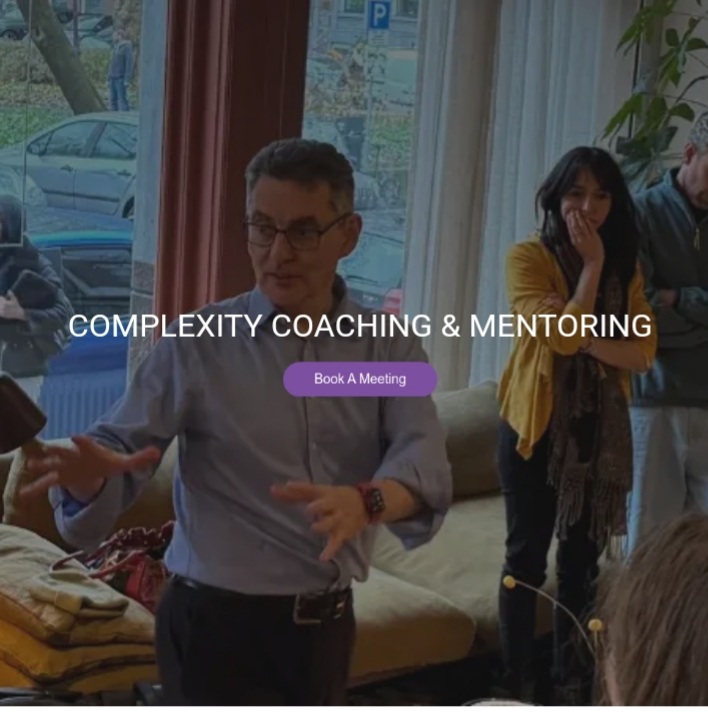The Complexity Coach: Your Guide Through the Uncharted

Strong 8k brings an ultra-HD IPTV experience to your living room and your pocket.
Complexity coaching recognises that in a complex system, control is an illusion. Instead of striving for control, the focus shifts to understanding patterns, fostering adaptability, and enabling wise action in the face of uncertainty. An executive sherpa in this context doesn't tell you what to do, but rather helps you understand how the terrain is behaving, where to place your next step, and how to prepare for the unexpected.
Why This Approach Stands Apart
This form of leadership coaching and mentoring is distinct in both purpose and process. Rather than equipping leaders with conventional tactics or replicable formulas drawn from linear successes, this approach nurtures the capacity to observe, adapt, and evolve within ever-changing systems. The coaching is oriented toward deeper engagement with uncertainty and emerging conditions, rather than offering predetermined answers.
Recognising Hidden Dynamics: Pattern Intelligence
One of the core elements of complexity coaching is helping leaders recognize systemic patterns that often go unnoticed. These might include repeated team conflicts, cultural bottlenecks, or unspoken narratives that influence behavior. Leaders are trained to see these patterns not as isolated problems but as signals of deeper dynamics at play.
By shifting focus from performance metrics to behavioral insights, leaders develop “pattern literacy.” This empowers them to anticipate ripple effects and take action in ways that are aligned with the system’s natural flow rather than against it.
Transforming Through Perspective Shifts
A key challenge in complex environments is mental rigidity—leaders tend to lean on familiar frameworks and experiences. Complexity coaching introduces techniques to reframe challenges, question core assumptions, and explore multiple interpretations of the same situation.
This process enhances cognitive flexibility and emotional agility. Instead of rushing to judgment, leaders learn to hold space for ambiguity and tolerate uncertainty long enough for clarity to emerge.
Safe-to-Fail Experiments: Learning through Action
Rather than initiating large-scale transformation efforts, complexity-informed coaching emphasizes the value of small, low-risk interventions. These “safe-to-fail” experiments allow leaders to test ideas in real-world conditions and gather quick feedback.
The goal is not immediate success, but learning through doing. This approach reduces fear of failure and encourages curiosity and innovation across teams. Leaders become more confident in experimenting, iterating, and adapting without the burden of needing to “get it right” on the first try.
Facilitating Emergence: Creating the Right Conditions
One of the unique strengths of leadership coaching and mentoring in a complexity framework is helping leaders focus not on controlling outcomes but on shaping the context in which outcomes can naturally emerge. This includes nurturing trust, transparency, open communication, and cultural alignment.
Rather than forcing change through mandates, leaders learn to notice where energy is already moving and how to support it. They become facilitators of emergence, creating space where innovation, resilience, and collaboration grow organically from within the system.
Embodying Contextual Wisdom
Complexity coaching invites leaders to engage with contextual intelligence—the ability to make decisions that are sensitive to timing, culture, and situational nuance. This goes beyond analytical thinking; it requires presence, ethical grounding, and emotional insight.
Wise action in complexity is not about having all the answers. It’s about knowing when to act, when to wait, and when to invite others in. Leaders trained in this style of coaching become more adept at sensing shifts, reading the room, and acting with humility and precision.
Rethinking Traditional Models
Traditional leadership development often relies on predictability, templates, and “best practices.” These models function well in complicated systems where problems are solvable through analysis and expert intervention. But when dealing with complex systems—like organizational culture, innovation ecosystems, or social transformation—these tools fall short.
Attempting to apply linear logic in non-linear environments leads to frustration, fatigue, and ineffective outcomes. Leaders may feel stuck, not because they lack capability, but because they’re using the wrong approach.
Building Lasting Capacity and Resilience
Ultimately, the true objective of leadership coaching and mentoring informed by complexity principles is not merely to address an immediate issue. It is to cultivate a leader’s long-term capacity to face any complex challenge with clarity, confidence, and adaptability.
Such coaching develops:
- A mindset of exploration over certainty
- The courage to act without full visibility
- The discipline to listen before leading
- The wisdom to balance structure with emergence
It enables leaders to show up fully—not as problem solvers with ready-made answers, but as guides who help shape systems from the inside out.
The ultimate goal of complexity-informed leadership coaching and mentoring is not just to solve a specific problem, but to build a leader's inherent capacity to navigate any complex challenge. It cultivates a mindset of curiosity, experimentation, and deep contextual awareness. It empowers leaders to become their own executive sherpas, capable of guiding their teams and organisations through the most intractable challenges, fostering true resilience, and unlocking latent potential in an ever-evolving world.
Note: IndiBlogHub features both user-submitted and editorial content. We do not verify third-party contributions. Read our Disclaimer and Privacy Policyfor details.




